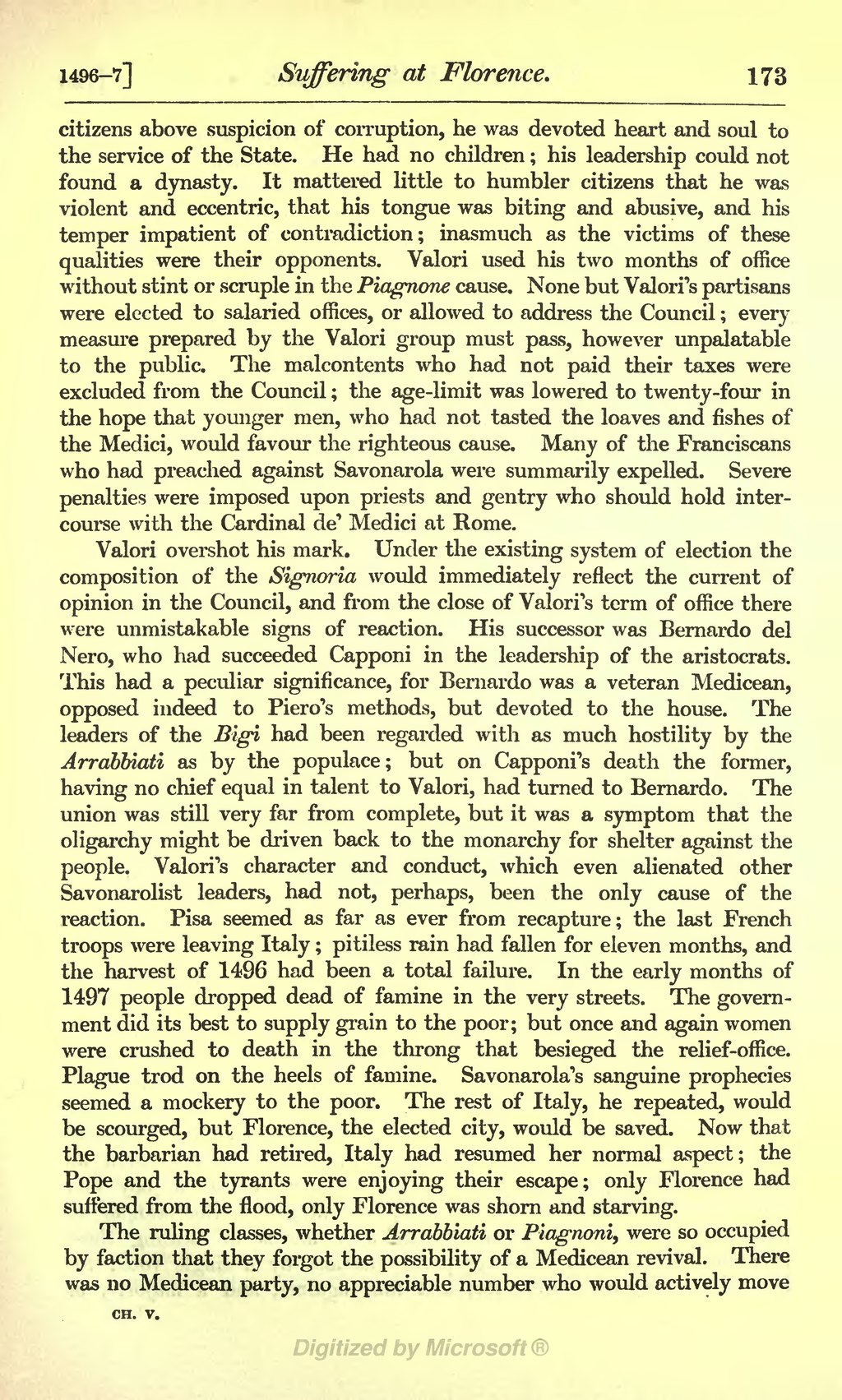citizens above suspicion of corruption, he was devoted heart and soul to the service of the State. He had no children; his leadership could not found a dynasty. It mattered little to humbler citizens that he was violent and eccentric, that his tongue was biting and abusive, and his temper impatient of contradiction; inasmuch as the victims of these qualities were their opponents. Valori used his two months of office without stint or scruple in the Piagnone cause. None but Valori's partisans were elected to salaried offices, or allowed to address the Council; every measure prepared by the Valori group must pass, however unpalatable to the public. The malcontents who had not paid their taxes were excluded from the Council; the age-limit was lowered to twenty-four in the hope that younger men, who had not tasted the loaves and fishes of the Medici, would favour the righteous cause. Many of the Franciscans who had preached against Savonarola were summarily expelled. Severe penalties were imposed upon priests and gentry who should hold intercourse with the Cardinal de1 Medici at Rome.
Valori overshot his mark. Under the existing system of election the composition of the Signoria would immediately reflect the current of opinion in the Council, and from the close of Valori's term of office there were unmistakable signs of reaction. His successor was Bernardo del Nero, who had succeeded Capponi in the leadership of the aristocrats. This had a peculiar significance, for Bernardo was a veteran Medicean, opposed indeed to Piero's methods, but devoted to the house. The leaders of the Bigi had been regarded with as much hostility by the Arrabbiatl as by the populace; but on Capponi's death the former, having no chief equal in talent to Valori, had turned to Bernardo. The union was still very far from complete, but it was a symptom that the oligarchy might be driven back to the monarchy for shelter against the people. Valori's character and conduct, which even alienated other Savonarolist leaders, had not, perhaps, been the only cause of the reaction. Pisa seemed as far as ever from recapture; the last French troops were leaving Italy; pitiless rain had fallen for eleven months, and the harvest of 1496 had been a total failure. In the early months of 1497 people dropped dead of famine in the very streets. The government did its best to supply grain to the poor; but once and again women were crushed to death in the throng that besieged the relief-office. Plague trod on the heels of famine. Savonarola's sanguine prophecies seemed a mockery to the poor. The rest of Italy, he repeated, would be scourged, but Florence, the elected city, would be saved. Now that the barbarian had retired, Italy had resumed her normal aspect; the Pope and the tyrants were enjoying their escape; only Florence had suffered from the flood, only Florence was shorn and starving.
The ruling classes, whether Arrabbiati or Piagnoni, were so occupied by faction that they forgot the possibility of a Medicean revival. There was no Medicean party, no appreciable number who would actively move
